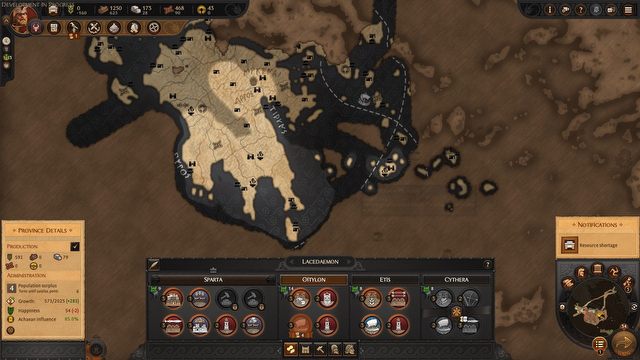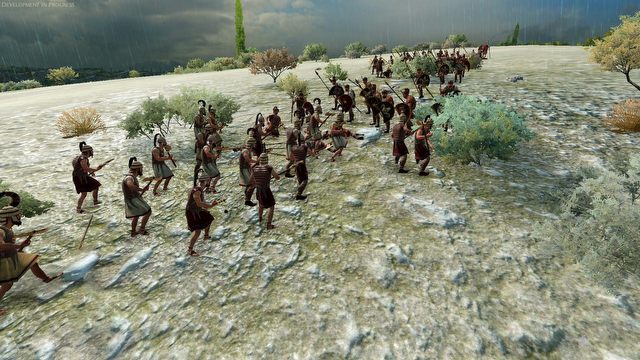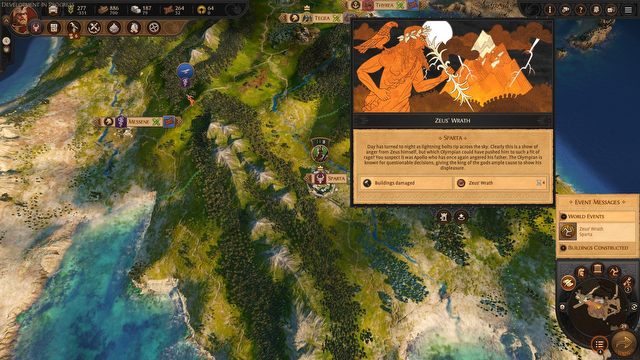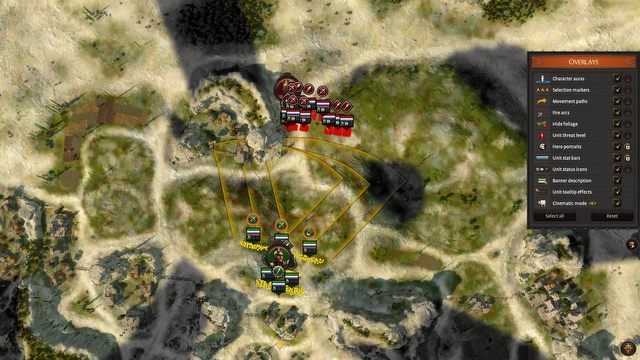Total War: Troy Preview – Holidays in Ancient Greece
The Total War series doesn't slow down. A little over a year after the Three Kingdoms, Saga Troy will debut on the market. It is theoretically a smaller production, but after a few hours, I'm already sure it will yield dozens of hours of fun.
What Total War is, everyone can see. "All Quiet on the Western Front," "you'll instantly feel at home in this game," "Total War never changes." Yep. You should now get the idea – the new Total War is... just another Total War. But since it's completely not surprising, we can now cut to the chase.
Total War Saga: Troy is the second minor Total War after Thrones of Britannia. In fact, in terms of geography, it's actually pretty small. Instead of all of Europe or China, we have just Greece, nearby islands, a large part of Turkey, the Bosphorus Strait and parts of today's North Macedonia and Albania. On the other hand, the map certainly doesn't seem tiny. We can find over 200 towns and cities here, and that's quite a lot.
Greece looks real pretty in the game. Through the azure water you can see coastal rocks, gulls fly over the land, the moonlight is reflected in the waves, and if you zoom in on the map, you will see mountains painted in ancient style as the background. It's definitely a very aesthetically pleasing Total War that feels really nice. This also applies to battles.
HOME SHOW
This preview is based on an online showcase. First, we listened to what the creators had to say about the game, and then we could play it ourselves from the comfort of our home.
Small big changes
Of course, it's difficult to pick out all the changes in gameplay after jsut a few hours with a production of this scale. Some of them, however, are big enough that you can't help but notice them right away. The most important change in my opinion is a new system of raw materials, namely wood, stone, food, bronze and gold. All of them are vital.
It wasn't long before I was invaded, which spurred me to double-down on developing the army. I did the usual thing at Total Wars: I hired a new commander and started recruiting as many units as I could afford. It soon became apparent, however, that I was unable to feed such a big army.
So, I started issuing royal decrees, building farms, but after a few turns I realized that trading with other factions would be much more viable. So I started to make trade agreements and sell bronze for food. A trade deal can span several rounds, so it's not just an ad hoc measure. And this actually changes the gameplay of Total War in quite an interesting way.
We achieve a great, mythical goal... or not
The game is not just about Greece; it's about the Greece from The Iliad. That means we don't choose from among eight factions, but rather eight heroes. For example, we can play Odysseus or Menelaus.
Each hero has their own goals to achieve, special rules affecting the entire faction, belongs to one of two alliances, and is a powerful character to rival Karl Franz from Total War: Warhammer. That means, among other things, that death on the battlefield is not final and the fallen commander comes around after a few rounds. This arrangement allowed Creative Assembly to retain the quasi-RPG character of the development system from TWW.
More importantly, however, the campaign has a very specific purpose. Depending on the side we choose, we must either recapture Helen, or keep her within the walls of Troy. On the other hand, we can... ignore it and focus on sandbox gameplay in which the mythological friends become enemies and we focus on conquering the entire Ancient Greece – because why not?
Gods and monsters
Many have feared that Creative Assembly would go too deep in fantasy and feature mythical creatures in the game. On the other hand, we're talking about The Iliad, which was full of fantastic and mythical motifs, so completely abandoning them would also be a little disappointing. The studio decided to meet both demands half-way, and it completely convinced me.
The minotaur is a powerful warrior dressed as a bull, and the Cyclopes is wearing an animal skull on his head with an opening resembling a large eye. There are also special agents, such as Medusa, who looks like a shaman and can intimidate enemy troops, lowering their stats. So yes, agents are coming back.
On top of that, we have influence of deities on gameplay. Some natural disasters are referred to as, for example, the wrath of Poseidon. Events like this can have a big impact on our economy. On the other hand, we can offer sacrifices to the Olympic deities, build temples and have positive buffs as a result. These, however, come down to things like a 30% reduction in the cost of recruiting light infantry, rather than Zeus hitting enemy units with lightning bolts.
Infantry rules
I think the element that's seen the least changes are battles. The land is beautiful, and the developers made sure that its shape will have an even greater impact on the course of the clashes than before. However, it's still mostly about setting formations, drawing enemy into ambushes, flanking, etc.
In games of the Total War series, it was always the era that determined whether the most powerful units were infantry, cavalry, or artillery. This time, it's the infantry. Of course we have slingers, javelinmen and archers, even chariots appear and there is no shortage of siege engines, but it will be the melee infantry who decide the fate of your empire in this game. We have light, medium, and heavy units, which gives you a little more leeway in configuring the army.
In the end, Troy is closest to Rome II – and it's hardly surprising, because they're both set in ancient times. But now, in line with the canon established by the game Total War: Warhammer, the heroes are more important to the outcome of the battle. Of course, they do not cast spells, but they do have special skills, can challenge enemy generals to duels and become stronger in the course of the game, gaining XP and additional equipment.
Classic moussaka
What's going to make it difficult for me to enjoy this game is my own, rather poor knowledge of these times. When in Medieval II I was informed that Venice was declaring war on me, I knew well how big the enemy was and where to find it on the map. It's not so easy with the Greek polis. I remember Athens and Sparta, but what else was there?
Of course, my ignorance should not be an argument against the game, but it is something to keep in mind, and I suspect many of you will have a hard time locating Mycenae on the map, for example.
On the other hand, you could also say it's an advantage, because it'll teach us something new, right?
What Total War is, everyone can see
Ultimately, though, I have to go back to the cliché I started with. The latest part of the series is just another Total War. Sure, it offers some unique solutions, but basically every installment of the series stands out with something from the others. This one is no more revolutionary.
The answer to the question whether it is worth spending money on this game is best answered after the launch. Initially, however, I will say that it will depend on how much you like the Total Wara formula itself and how much you like ancient themes. I'll be happy to spend this holiday in Greece – you decide for yourself.
ABOUT THE AUTHOR
I've spent four hours with Total War Saga: Troy. I went through the entire demo and then I started from the beginning and got to about a third of the second lap. In total, I spent nearly a thousand hours with this series. I particularly appreciated Empire, Medieval II and Warhammer.




